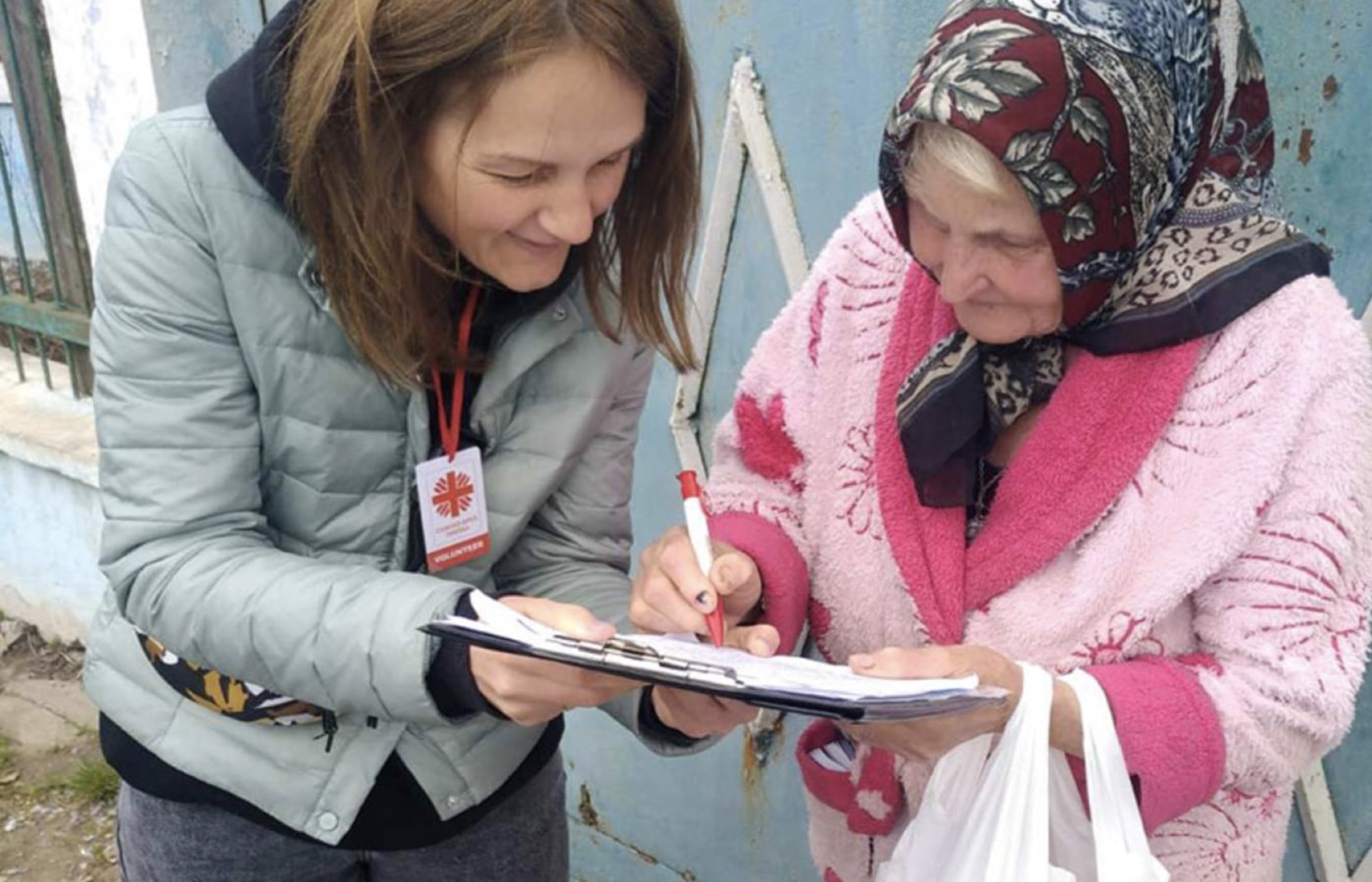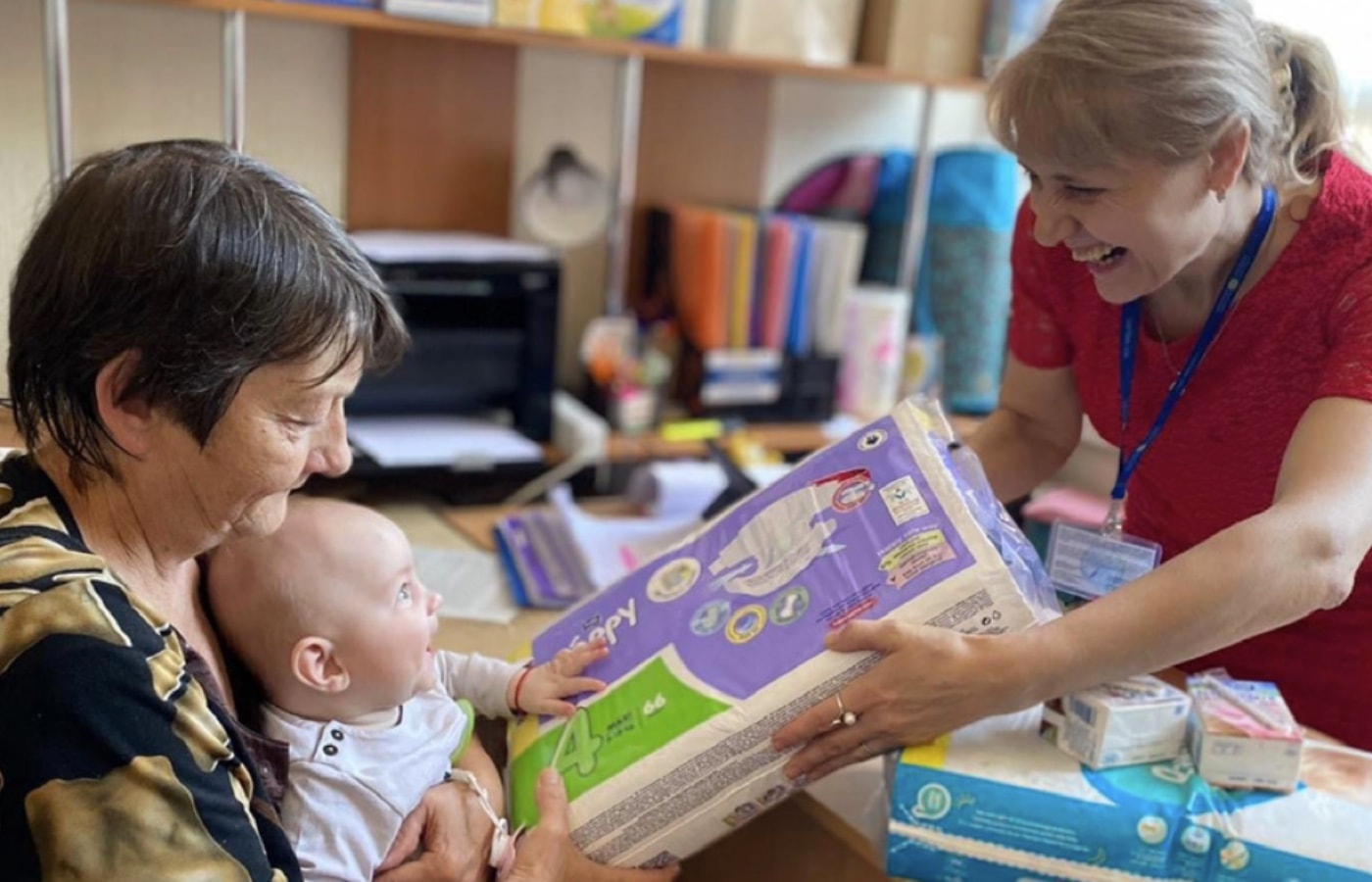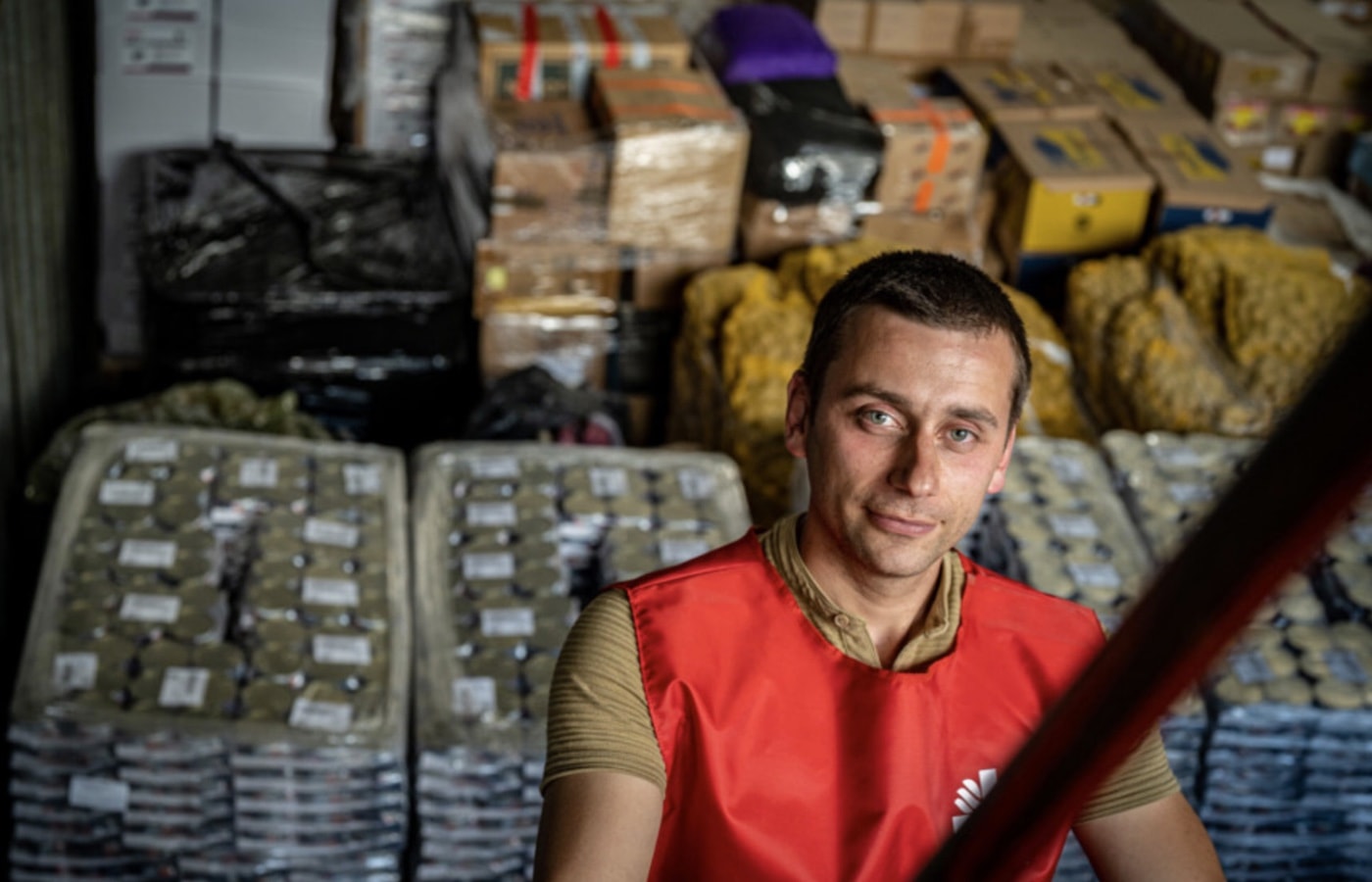Global Food Crisis—CRS has identified 25 priority countries that are affected by high levels of acute food insecurity and malnutrition due to combinations of these drivers, which are expected to continue through 2024. Areas of urgent concern include East Africa and the Sahel, as well as Central America, Southern Africa and, more recently, Gaza.


Global Emergency Update July 2022
Global Emergency Update: Ukraine Conflict
Nearly six months into the crisis in Ukraine, Catholic Relief Services is supporting our Caritas partners in 10 countries across the region. Together, we are providing displaced Ukrainians and refugees with humanitarian relief to meet urgent and long-term needs—including food, hygiene, education and safe shelter.

CRS is supporting our Caritas partners to assist displaced Ukrainians, paying particular attention to older adults, large families, pregnant women, and people with disabilities or limited mobility.
Photo courtesy of Caritas Spes
Overview
Since the Russian invasion of Ukraine in February, more than 9 million people have crossed the border into neighboring countries, while 6.3 million people remain displaced within Ukraine. In the past month, the situation has become increasingly dire in the east and south, as the Russian military continues to capture territory and damage civilian infrastructure, severely restricting people's access to essential services—including water, electricity and health care. As people flee besieged eastern cities and towns, places like Zaporizhia—the closest major city to Mariupol—and Dnipro are seeing an influx of displaced families. These families tend to be more vulnerable, given what they have endured. In the past several months, not only have they lost their homes and resources—many have lost loved ones or witnessed loss of life. Poland continues to host the largest number of Ukrainian refugees, now surpassing 1.2 million. Neighboring countries such as Moldova— the poorest country in Europe—as well as Bulgaria, Romania, Slovakia, Hungary and others, continue to host refugees at numbers nearing 100,000 per country.
6.3 million
people remain displaced within Ukraine, while more than 9 million people have crossed the border into neighboring countries.
CRS and Caritas Response
CRS is supporting our Caritas partners in 10 countries to assist displaced Ukrainians and refugees with comprehensive assistance to meet their immediate needs. We are also helping to provide support for families and local communities as they manage and navigate longer-term solutions, given the ongoing conflict. The capacity of the multi-country Caritas network and CRS' long-standing partnerships have enabled CRS to quickly scale up efforts in the region. Notably, CRS secured a grant from Airbnb to provide short-term accommodation for about 3,000 refugees and displaced people. The first bookings took place in Bulgaria and received positive feedback, showing growth potential.
This support includes:
- Food for nearly 1.4 million people.
- Safe shelter for 236,000 people.
- Cash assistance for 57,000 people.
- Hygiene kits for nearly 530,000 people.
- Medical support, including 91,000 health-related services.
- 148,000 services related to protection, psychological support, and information about social services for education, transportation and legal assistance.
As outlined above, these initial activities aim to meet urgent needs for food, shelter, water, and mental and physical well-being, often delivered at Caritas centers, border crossings and in areas affected by fighting. As the crisis and needs evolve, we are working with displaced Ukrainian families, communities and partners to evaluate and address complex problems and respond to long-term needs. These efforts will likely focus on financial assistance to displaced families for rent, renovation of damaged homes and the purchase of basic necessities. Basic repairs to buildings—such as replacing windows—in the Kyiv, Chernihiv and Sumy regions are in the early stages.

Caritas Zaporizhia provides comprehensive support to families.
Photo courtesy of Caritas Ukraine/Caritas Zaporizhia
Ukraine
Since the start of the conflict, CRS partners Caritas Ukraine and Caritas Spes have collectively supported 3 million people. Over the past several months, the Caritas Ukraine network has strengthened and expanded to meet the needs of the most vulnerable. It has more than 1,200 staff members—providing a strong localized response covering most regions of Ukraine. Most of the people we support are displaced or living in isolation due to continued fighting, with a lack of access to essential goods and services. Particular attention is being given to large families, pregnant women, older adults, people with disabilities and people with limited mobility. Meanwhile, Caritas Spes is responding across 23 regions of Ukraine and in more than 15,000 settlements, including front-line zones.

“I can't describe what I experienced in Mariupol because I can't find the right words. I try not to think about it. Joy arises when I see that people receiving help from us begin to believe in the future.”
Moldova
- Education, counseling and other services support the well-being of refugee children and build social cohesion among Ukrainians and Moldovans. A special program for Ukrainian and Moldovan children kicked-off with summer camp activities and will include educational support when the school year begins.
- Cash assistance has reached almost 69,000 refugees, ensuring they can buy key items in local markets.
- 14,000 refugee families have received food and hygiene vouchers.
- 38,045 hot meals have been served at refugee accommodation centers.
- The shelter program continues to grow, with 2,160 Moldovan residents having received cash assistance for hosting refugees. The second phase of the program is focused on working with Moldovan host communities to identify safe and dignified housing for refugees.

CRS and our Caritas partners have provided food for nearly 1.4 million people in Ukraine.
Photo courtesy of Caritas Spes
Romania
CRS supported Caritas Romania to open a social service center for Ukrainian refugees in Iasi, Romania, that provides access to legal and social counseling, help accessing medical care, Romanian language courses, access to psychologists, and vouchers for food and other needs. This is the fifth Caritas social center now operational in Romania. Caritas partners in four locations have launched summer school activities for Ukrainian children, to help them prepare for the upcoming school year and regain a sense of normalcy and routine.
Poland
CRS has supported Caritas Poland in the supply of cash assistance to 2,460 refugee families, as well as with the design and launch of a project for unaccompanied and separated children. This project has the potential to leverage and extend the resources of CRS' Strategic Change Platform on family strengthening. CRS is also working closely with Caritas Poland and Caritas Germany to support the many dioceses that are caring for unaccompanied children, including providing a temporary technical advisor to Caritas Germany.

“Our partner staff are reaching out to people in need, showing them great compassion, despite the fact that they themselves are affected by the trauma of this war in their daily lives.”
Bulgaria and Slovakia
The Caritas Bulgaria network continues to provide vital services to refugees in Sofia, Plovdiv, Rakovski, Burgas and Ruse via its diocesan offices. Services include safe accommodation in Church facilities, food and living supplies, Bulgarian language classes and employment referrals. In Slovakia, CRS is supporting Caritas' capacity for cash assistance, safeguarding, and monitoring and evaluation, as well as supporting its nationwide reception and referral services.
Hungary
CRS is supporting Caritas Hungary as it manages 35 facilities that provide safe shelter for refugees. CRS support includes strengthened capacity for financial management, safeguarding, and monitoring and evaluation of program quality and impact. Caritas Hungary facilities have the capacity to increase the availability of short-term stays for up to 2,000 people. Caritas Hungary is also supporting refugees with food and living supplies.
Download & Print Global Emergency Update English Global Emergency Update
Recent Global Emergency Updates
February 2024
Ukraine War: Two Years of Emergency Relief and Recovery—In February of 2022, Russia invaded Ukraine, causing massive destruction and loss, separating families and uprooting millions of people from their homes. Over the past two years, Catholic Relief Services has worked with Caritas and other partners across Ukraine and the region to provide a range of support to meet people’s urgent needs for food, shelter, living supplies, medical care and counseling.
January 2024
Emergency Response in the Holy Land—Catholic Relief Services and our partners are responding to immediate needs of families facing hunger and displacement in the Holy Land.

